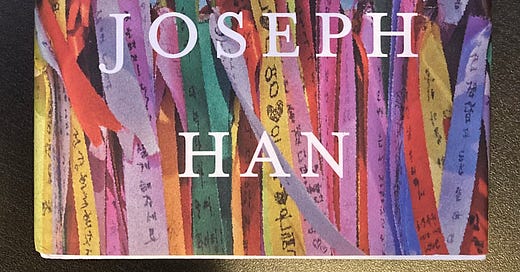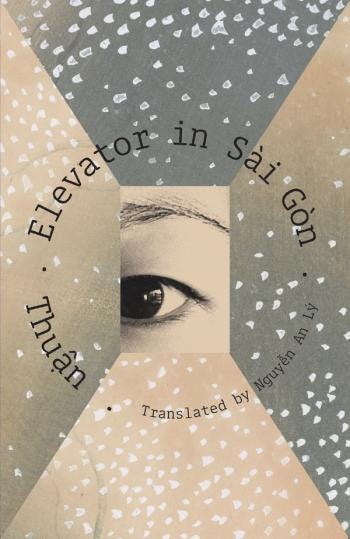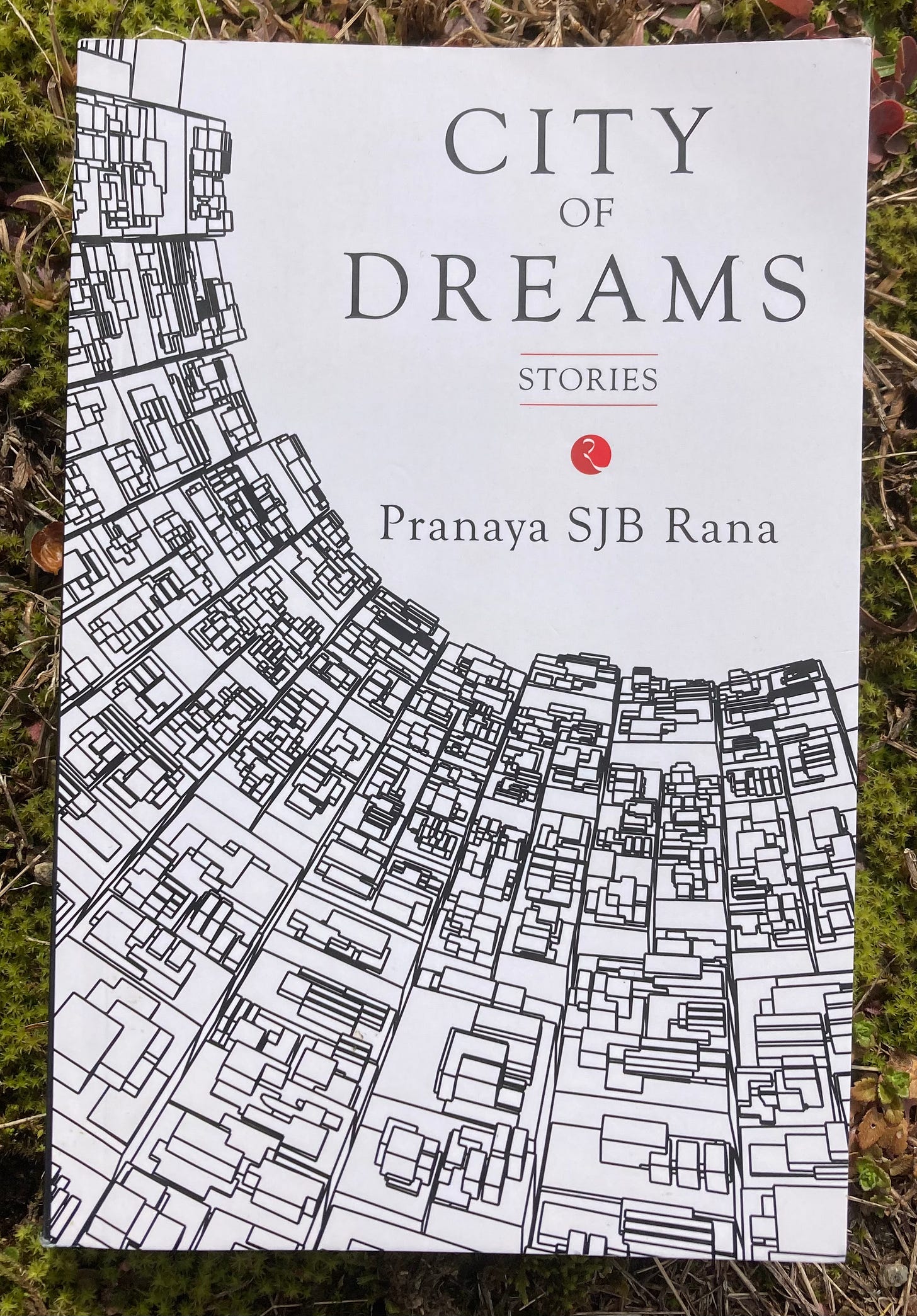Joseph Han’s Nuclear Family was one of the books I picked up in Hawai’i a couple of years ago. I got five books in total and the third one was pretty disappointing. Apparently that put me off reading the others until now. Han’s novel centres around a family of Korean immigrants in Hawai’i who run a popular restaurant. It’s a polyphonic novel jumping between various family members, including those in the wider family back in Korea. The son, Jacob (born in Hawai’i), moves to Seoul to teach English and improve his Korean language skills. While there, he is possessed by the ghost of his dead grandfather (who he never met) who, in death, is trying to return to his ancestral village in the North (apparently ghosts can’t cross the border either). When Jacob is filmed trying and spectacularly failing to cross the DMZ, the shit hits the fan for everyone (none of this is spoilers, it’s all on the dust jacket). It’s brilliant, funny, insightful, and very well balanced between the different perspective and generations.
Thuận’s Elevator in Sài Gòn (translated by Nguyễn An Lý) was a digital advance copy I received from New Directions a while back and hadn’t got round to for the usual reasons. I thoroughly enjoyed Thuận’s first English translation, Chinatown, so I was keen to read this and the Nagoya-Bangkok-Kathmandu flight seemed like the ideal opportunity. While Chinatown was essentially one long narrative taking place in the main character’s head while on the Paris Metro, Elevator in Sài Gòn is more traditional, with chapters and everything (while the artist in me likes formal experimentation, the sleepy reader in me likes chapter breaks). It’s the story of a Vietnamese immigrant in Paris who returns home for her mother’s funeral. This sparks an almost obsessional interest in her family history, particularly into her mother’s connection with a mysterious European man. As she investigates, the story swings between the possibilities of romance and espionage. Great stuff, and I hope New Directions keeps translating Thuận’s work.
Whenever I visit travel to another country I try and pick up at least one example of the local literature, and this is particularly true when I go to a country for the first time. Last month I was lucky enough to go to Kathmandu for a few days and while I was there I came across this collection of short stories. Buying local lit without prior knowledge is often a bit hit and miss: Googling usually just returns either the classics (think Googling “British literature”) or something more historical, and I don’t want to go into bookshops looking for a specific book; I want something to leap out at me. City of Dreams by Pranaya SJB Rana did exactly that. It was wrapped in plastic so I couldn’t flick through and so, literally judging it by the cover, I took a chance. It paid off. This is a cracking collection of stories. The author quotes Italo Calvino up front and there’s certainly a Calvino influence in the magical realism rooted in the hyper-specific. All but one of the stories is set in Kathmandu (and the other is haunted by the city) and each has a distinct voice and perspective. I read the entire thing on the flight from Kathmandu to Bangkok and nearly went back and started again. Having spent six days in Kathmandu I could enjoy some of the references and a big dollop of the atmosphere but I also got the distinct impression that there are geographical and cultural layers that were beyond me. It seems this is his only book, and it’s published by an Indian press so might be hard to find elsewhere: if I worked for a publisher in the UK or US, I’d look into licensing this.







(while the artist in me likes formal experimentation, the sleepy reader in me likes chapter breaks) - such a quotable line. Hope you do send out a few mails re the Kathmandu stories. There would be a ready market in the UK and it is still frustrating trying to access Asian writing here. You wait years for a translation to come through then are faced with a task finding the newer writing. My writing group has just discovered Italo Calvino. Oh, I've started on Japan Lights, so thank you in advance.
I finished Japan Lights, so first thank you again. It was nice to spend time with you and Minori, James and Stephen. Books are like nice meals; they take an age to prepare and get on the table, then they are wolfed down and gone, a lingering taste. I was doing a curious experiment as I was reading Marion Poschmann's The Pine Trees (2023) simultaneously - one in hard copy, one on Borrowbox - lots of talk of Basho and Matsushima Bay. The Pine Trees (translated from the German by Jen Calleja) gave a useful update on the post-tsunami situation. Her character finds the Bay full of cranes and concrete and an island completely gone missing. So coming back to The Japan Lights was always relaxing, a great road trip a la Alan Booth. And a great achievement to make a readable book out of quick trips to lighthouses, closed or open, heritaged with souvenirs or forgotten little out-of-the-way corners. Where's my rucksack? I'm so ready to go.